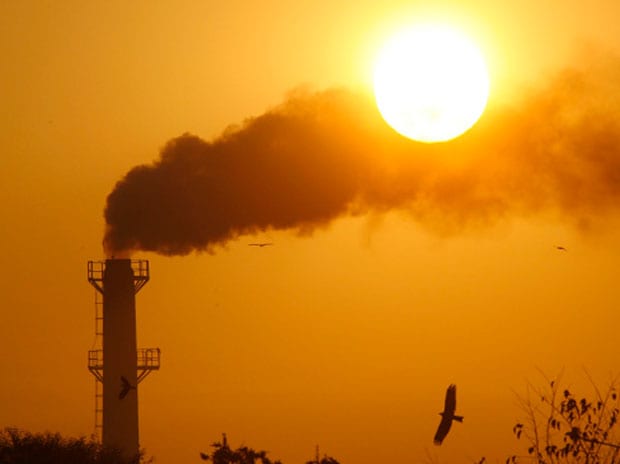The lockdown measures enforced to prevent the spread of COVID-19 were associated with an unprecedented decline in global carbon dioxide emissions, larger than during the financial crisis of 2008, the oil crisis of the 1979, or even World War II, according to a new study by an international team of researchers.
The research, published in the journal Nature Communications, found that during the first six months of this year, 8.8 per cent less CO2 was emitted than in the same period in 2019 -- a total decrease of 1,551 million tonnes.
The research not only offers a much more precise look at COVID-19's impact on global energy consumption than previous analyses, but also suggests what fundamental steps could be taken to stabilise the global climate in the aftermath of the pandemic.
"What makes our study unique is the analysis of meticulously collected near-real-time data," said Zhu Liu from the Tsinghua University in China.
"By looking at the daily figures compiled by the Carbon Monitor research initiative we were able to get a much faster and more accurate overview, including timelines that show how emissions decreases have corresponded to lockdown measures in each country, said Liu.
The researchers noted that in April, at the height of the first wave of coronavirus infections, when most major countries shut down their public life and parts of their economy, emissions even declined by 16.9 per cent.
The lockdown measures during various outbreaks resulted in emission drops that are normally seen only on a short-term basis on holidays such as Christmas or the Chinese Spring Festival, they said.
The study also shows which parts of the global economy were most impacted.
"The greatest reduction of emissions was observed in the ground transportation sector," explained Daniel Kammen, professor at the University of California, Berkeley in the US.
"Largely because of working from home restrictions, transport CO2 emissions decreased by 40 per cent worldwide. In contrast, the power and industry sectors contributed less to the decline, with minus 22 per cent and minus 17 per cent, respectively, as did the aviation and shipping sectors," Kammen said.
Even the residential sector saw a small emissions drop of 3 per cent, largely because of an abnormally warm winter in the northern hemisphere, heating energy consumption decreased with most people staying at home all day during lockdown periods, the researchers said.
The team based its estimates on a wide array of data: precise, hourly datasets of electricity power production in 31 countries, daily vehicle traffic in more than 400 cities worldwide, and daily global passenger flights.
The researchers also used monthly production data for industry in 62 countries as well as fuel consumption data for building emissions in more than 200 countries.
They also found strong rebound effects. With the exception of a continuing decrease of emissions stemming from the transportation sector, by July 2020, as soon as lockdown measures were lifted, most economies resumed their usual levels of emitting CO2.
However, the researchers noted that even if they remained at their historically low levels, this would have a rather minuscule effect on the long-term CO2 concentration in the atmosphere.
They stress that the only valid strategy to stabilise the climate is a complete overhaul of the industry and commerce sector.
"While the CO2 drop is unprecedented, decreases of human activities cannot be the answer," said Hans Joachim Schellnhuber, founding director of the Potsdam Institute for Climate Impact Research in Germany.
"Instead we need structural and transformational changes in our energy production and consumption systems. Individual behaviour is certainly important, but what we really need to focus on is reducing the carbon intensity of our global economy," Schellnhuber added.
(Only the headline and picture of this report may have been reworked by the Business Standard staff; the rest of the content is auto-generated from a syndicated feed.)
 Dear Reader,
Dear Reader,
Business Standard has always strived hard to provide up-to-date information and commentary on developments that are of interest to you and have wider political and economic implications for the country and the world. Your encouragement and constant feedback on how to improve our offering have only made our resolve and commitment to these ideals stronger. Even during these difficult times arising out of Covid-19, we continue to remain committed to keeping you informed and updated with credible news, authoritative views and incisive commentary on topical issues of relevance.
We, however, have a request.
As we battle the economic impact of the pandemic, we need your support even more, so that we can continue to offer you more quality content. Our subscription model has seen an encouraging response from many of you, who have subscribed to our online content. More subscription to our online content can only help us achieve the goals of offering you even better and more relevant content. We believe in free, fair and credible journalism. Your support through more subscriptions can help us practise the journalism to which we are committed.
Support quality journalism and subscribe to Business Standard.
Digital Editor

RECOMMENDED FOR YOU